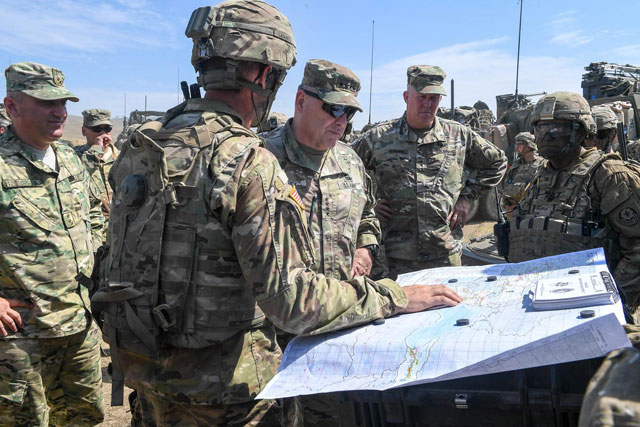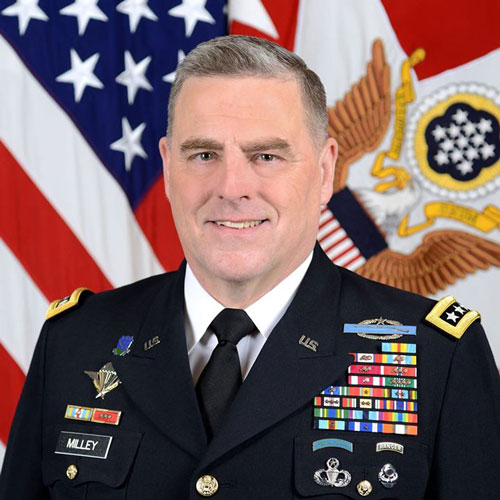
Washington, United States | AFP | US military leaders have been denouncing racism and intolerance since a white supremacist rally in Virginia — with condemnation mounting after President Donald Trump said counter-protesters also were to blame for the violence.
Trump on Tuesday held a New York press conference in which he said the “alt-left” was also responsible for the deadly violence in Charlottesville and said there were “very fine people on both sides” of the protest.
Those comments were warmly embraced by David Duke, a former “grand wizard” of the Ku Klux Klan.
On Wednesday morning, General Mark Milley, who is chief of staff of the Army, took to Twitter to reinforce his service’s values.
“The Army doesn’t tolerate racism, extremism, or hatred in our ranks. It’s against our Values and everything we’ve stood for since 1775,” Milley wrote.

The Army doesn’t tolerate racism, extremism, or hatred in our ranks. It’s against our Values and everything we’ve stood for since 1775.
— GEN Mark A. Milley (@ArmyChiefStaff) August 16, 2017
Marine Commandant General Robert Neller also sent a message after Trump’s comments.
“No place for racial hatred or extremism in @USMC. Our core values of Honor, Courage, and Commitment frame the way Marines live and act,” he wrote.
Admiral John Richardson, who heads the Navy, had issued a statement Saturday calling the events in Charlottesville “shameful.”
“The Navy will forever stand against intolerance and hatred,” he said.
The military has been especially keen to distance itself from the weekend’s neo-Nazi demonstrations because some demonstrators were sporting US military clothes or insignia.
One man, who was photographed making a Nazi salute, wore a baseball cap bearing the logo of the 82nd Airborne Division.
The legendary military unit was quick to distance itself from any association with the man.
“Our WWII Airborne forefathers jumped into Europe to defeat Nazism. We know who we are. We know our legacy,” the 82nd wrote on Twitter, creating a chain of comments in which the relatives of those who fought in World War II posted photographs or the gravestones of loved ones who battled Nazis.
 The Independent Uganda: You get the Truth we Pay the Price
The Independent Uganda: You get the Truth we Pay the Price





